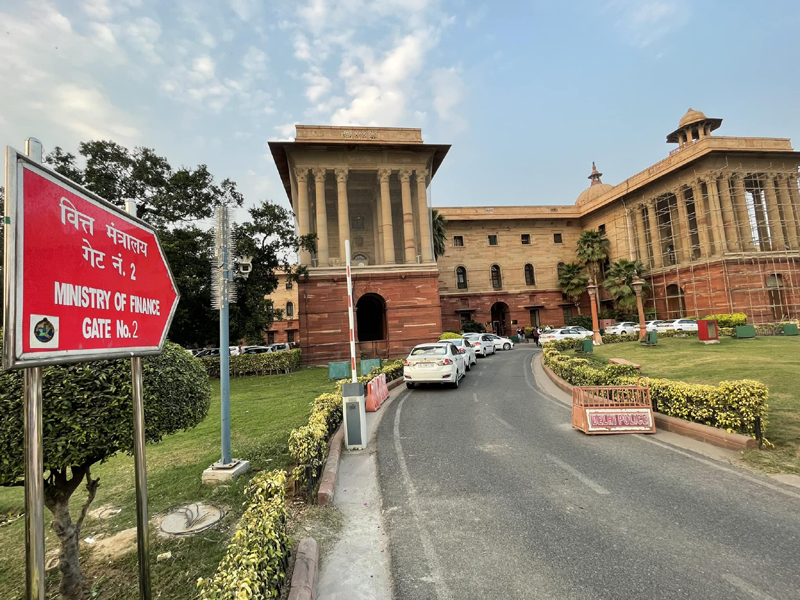 Indian Economy
Indian Economy
Normal monsoon, stable food prices will firewall India 'against any adverse pressures', says finance ministry review
New Delhi/IBNS: The Indian Ministry of Finance on Friday exuded confidence about the country's economic resilience, amid global conflicts and commodity price spikes, reports said.
According to the finance ministry's monthly economic review, positive indications in the farm sector like the prediction of a normal monsoon and stabilizing food prices will help India “firewall against any adverse pressures" from such external factors in the coming months.
As per the April review by the Union finance ministry's Department of Economic Affairs said that while a normal monsoon will stabilize food prices, strong macroeconomic buffers will help the economy navigate external headwinds smoothly and continue the growth momentum of the previous fiscal year (FY24).
India is expected to report a GDP growth of at least 7.6 percent during FY24, which would be the fastest in any major global economy, while the Reserve Bank of India (RBI) expects the Indian economy to register 7 percent growth in FY25, as per government estimates.
According to a report by Mint, India's robust economic performance comes amid a slowdown in the global economy, on the back of a high-interest rate regime in advanced economies and various geopolitical conflicts, which have impacted energy prices and trade.
"The crux of the foregoing discussion is that the industrial and service sectors of the Indian economy are performing well, backed by brisk domestic demand and partially by tentative external demand," the review said.
"Domestic manufacturing is likely to receive stronger external support in the upcoming months," it added.
"Modestly improved economic activity and consumer sentiment in Europe and a steady US economy have aided India’s exports in April… This can benefit India's manufacturing firms as part of the China Plus One strategy," the review read.
In FY24, the country's merchandise exports stood at $437.06 billion, down from $451.07 billion during the previous fiscal (FY23), and goods imports fell to $677.24 billion from $715.97 billion during the same period, according to reports.
The Union finance ministry, in its latest economic review, said the ongoing recovery in the hotel and tourism industry, increased credit flow to transport and real estate segments, policy support and robust investments in physical and digital infrastructure and logistics will help the services sector.
Meanwhile, according to the finance ministry's review, the harvest for the Rabi Marketing Season for FY25 will temper the prices of agricultural produce like wheat and chana, which along with the prediction of a normal Southwest Monsoon augurs well for food production and easing of price pressures.
As per the review, retail inflation eased slightly to 4.83 percent in April, down from 4.85 percent in March, mainly due to falling fuel prices.
However, the country's food inflation remains elevated, according to reports.
Support Our Journalism
We cannot do without you.. your contribution supports unbiased journalism
IBNS is not driven by any ism- not wokeism, not racism, not skewed secularism, not hyper right-wing or left liberal ideals, nor by any hardline religious beliefs or hyper nationalism. We want to serve you good old objective news, as they are. We do not judge or preach. We let people decide for themselves. We only try to present factual and well-sourced news.







